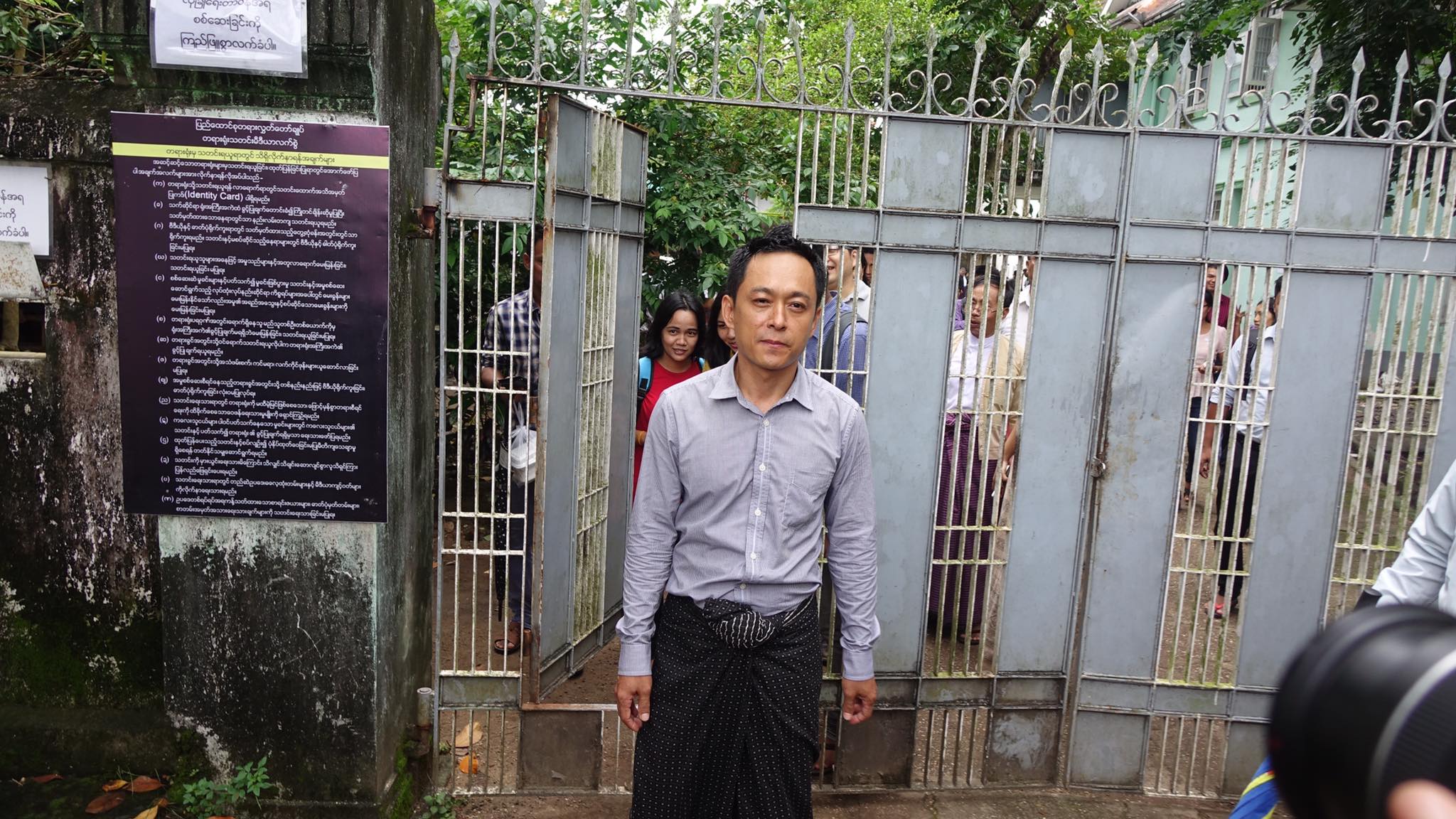Following more than two months’ detention, The Voice Daily’s chief editor Kyaw Min Swe was released on a 10 million kyats ($7,350) bail by a Rangoon court on Friday morning, according to the defendant’s lawyer.
Kyaw Min Swe was arrested on 2 June along with a regular satirical columnist for the publication over an article the latter wrote referencing a movie, “Union Oath,” aired by the military-owned Myawady TV channel in March. Kyaw Zwa Naing, the columnist, faced the same initial charge as his superior — a controversial defamation provision under article 66(d) of the 2013 Telecommunications Law — but later had that charge dropped, only to see a second case brought under Burma’s News Media Law.
The offending column, headlined “Oath of the Nation of Bullets,” was published on 26 March and reads, in part, “When the number of soldiers of the lowest ranks killed in battle has reached a satisfactory point, the major leaders hold celebratory peace conferences from time to time. Only the soldiers on both sides of the frontline are shooting their butts off.”
“He [Kyaw Min Swe] was released on bail for two lawsuits, [under] the Telecommunications Law and Media Law,” said lawyer Khin Maung Myint, referring to broadly similar defamation charges under the two pieces of legislation.
Khin Maung Myint said his client’s next hearing would be held on 17 August, when the Bahan Township Court is expected to call Captain Than Tun Oo to testify as a witness in the case.
Kyaw Min Swe spoke to reporters after his hearing on Friday and said he was surprised by the failure of Parliament’s Upper House this week to pass more far-reaching amendments to article 66(d) of the Telecommunications Law, which has been under increasing scrutiny for months. He said cases similar to his would continue to be lodged until less punitive reforms were enacted.
“I’m a media person and all media are interested in my case. But I’m worrying for the other citizens. We won’t necessarily know how they feel when they are charged under article 66[d],” he said.
[related]
Article 66(d) criminalises anyone “extorting, coercing, restraining wrongfully, defaming, disturbing, causing undue influence or threatening to any person by using any Telecommunications Network,” with the offence punishable by up to three years in prison, plus a fine.
Both Kyaw Min Swe and Kyaw Zwa Naing are also facing charges under the News Media Law’s article 25(b). That provision states that “writing that deliberately harms the dignity of an individual or an organisation, and writing which negatively affects human rights, shall be avoided.”
The two defendants in that case were informed of the additional News Media Law charges last month.



